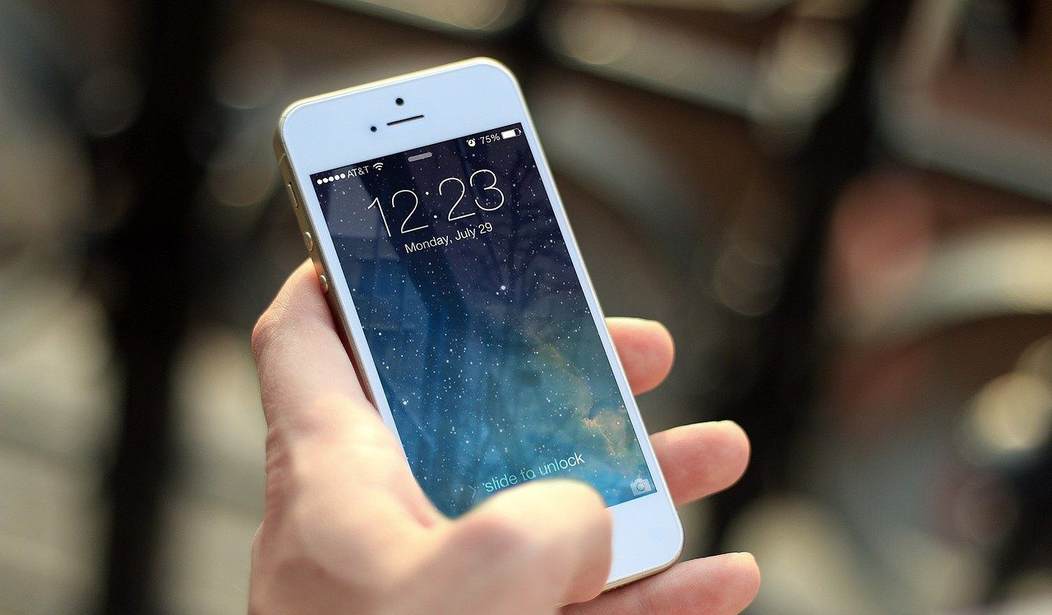I’ve noted before that I tend to be fairly pro-police. After all, I was raised by a police officer and grew up around the job, so I know it’s a tough gig at the best of times and this isn’t the best of times.
However, my understanding of that job doesn’t mean I think police should be able to do whatever they want. Some stuff, like, say cell phone tracking is a bit of a problem for me absent a warrant.
Yet it seems that’s something that’s happening and lawmakers are trying to limit that ability.
The Associated Press reports that members of Congress are seeking to introduce legislation that would limit law enforcement agencies’ ability to buy cell phone tracking tools to follow people’s location.
Earlier this month, the AP reported on a tool known as “Fog Reveal” that police have used to search hundreds of billions of records from 250 million mobile devices.
“It’s sort of a mass surveillance program on a budget,” said Bennett Cyphers, a special adviser at the Electronic Frontier Foundation (EFF), a digital privacy rights advocacy group. A recent investigation by EFF found that Fog Reveal allows its customers to “access detailed histories of regular people’s lives.”
Fog Reveal has been used by law enforcement since at least 2018; now, Congress is taking note. “Americans are increasingly aware that their privacy is evaporating before their eyes, and the real-world implications can be devastating. Today, companies we’ve all heard of as well as companies we’re completely unaware of are collecting troves of data about where we go, what we do, and who we are,” said Sen. Ed Markey (D-Mass.)
…
Since the extent of its data collection was brought to light, Fog Reveal has received criticism from both sides of the political aisle. “Fog Reveal is easily de-anonymized tracking of Americans’ daily movements and location histories. Where we go can say a lot about who we are, who we associate with, and even what we believe or how we worship,” said former Congressman Bob Goodlatte (R-Va.), who previously served as U.S. House Judiciary chairman. Goodlatte now works as a senior policy adviser to the Project for Privacy and Surveillance Accountability. “The current political climate means that this technology could be used against people left, right and center. Everyone has a stake in curbing this technology,” Goodlatte added.
Now, the privacy concerns here should be obvious, but what does this have to do with the Second Amendment?
Well, in a better world, nothing.
However, we don’t live in a better world. We live in this one.
In this one, we have a problem. We have an ATF that has engaged in all kinds of problematic behavior. We have an FBI that’s doing shady things as well. Even the Post Office has gotten in on the act.
Now, couple that with the fact that credit card companies are trying to track gun sales–something not directly due to law enforcement, but still a concern–and we had enough on our plates.
The idea that law enforcement can use cell phone data to determine who is going to gun stores isn’t exactly grounds to do away with our concerns here, now is it?
Look, I’m not saying it’s time to grab the tin foil, but maybe it’s time to stop making fun of those who already did so.
Cell phone tracking is a useful tool for law enforcement, no doubt about it. However, to conduct cell phone tracking on anyone without a warrant is a significant invasion of our privacy. Law enforcement doesn’t need that data on just anyone and when they do need it, they should be petitioning the courts for it, just as if they want to access your computer or get your internet history from your ISP.
Nothing about this is sitting well with me, especially in light of everything else we’ve seen out of law enforcement of late.
Yes, these are different branches and levels, but that makes it more concerning. It’s not just one agency we need to be concerned with here.
Cell phone tracking needs to be on a case-by-case basis and I sincerely hope lawmakers are able to put an end to this kind of thing once and for all.







Join the conversation as a VIP Member